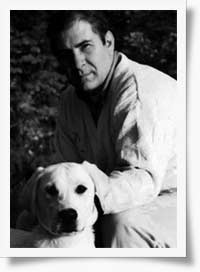 On November 19, one hundred and fifty years ago Abraham Lincoln delivered the Gettysburg Address. It is one the most remarkable, if not the most remarkable, speeches in American history.
On November 19, one hundred and fifty years ago Abraham Lincoln delivered the Gettysburg Address. It is one the most remarkable, if not the most remarkable, speeches in American history.
A local newspaper focusing on the length of the speech, said Lincoln “could hardly have said less.” In truth, one would be hard pressed to say more.
There are only 27I words in the Gettysburg Address, but every word matters. It is dense – more poetry than prose. It is at once a reaffirmation of the past and a prayer for the future – a prayer uniquely appropriate for his time and equally valid in ours.
With his first sentence, Lincoln restates the founding principles of the United States, reminding us America is the first nation in the history of the world to be founded with a purpose. In his words, America was “conceived in Liberty, and dedicated to the proposition that all men are created equal.”
In saying this, Lincoln echoes Jefferson’s first draft of the Declaration of Independence. “All men are created equal and independent,” Jefferson wrote and “from that equal creation they derive rights inherent and inalienable, among which are the preservation of life, and liberty, and the pursuit of happiness.”
The printer and publisher Benjamin Franklin perfected Jefferson’s prose and gave the Continental Congress the language familiar to us today: “We hold these truths to be self-evident, that all men are created equal, that they are endowed by their Creator with certain unalienable rights, that among these are life, liberty and the pursuit of happiness.”
It can be argued that no other concept has had such a profound impact on American society. No single phrase is closer to the heart of America, more institutionalized and broadly accepted in principle; yet, none of our founding principles has been the source of more controversy or more frequently challenged in application.
The Civil War was the first and most significant test of our commitment to equality. Lincoln’s remarks reflected that fact. He spoke at 3:00 pm on a dreary afternoon four and a half months after the Battle of Gettysburg. In the dusk, Lincoln looked so pale some said he was ill. He was sad and somber.
No wonder. In three days, more than 45,000 men had died or were wounded at Gettysburg. Tens of thousands had preceded them. Lincoln knew many more would follow before the war was over. And the fate of the union still hung in the balance.
“It is for us the living,” Lincoln said, acknowledging these facts, “to be dedicated here to the unfinished work which they who fought here have thus far so nobly advanced… that from these honored dead we take increased devotion to that cause for which they gave the last full measure of devotion — that we here highly resolve that these dead shall not have died in vain — that this nation, under God, shall have a new birth of freedom — and that government of the people, by the people, for the people, shall not perish from the earth.
Many wars have followed. Many more have perished in the name of liberty. Many battles have been fought to fulfill in the promise of equality. The challenge to form, in Lincoln’s words, “a more perfect union” continues and is unending.
It is a mistake to assume we can ever achieve perfection. But it is an even greater mistake to cease trying. America is always a work in progress. America is becoming. America is a promise. America is an ideal to cherish and a dream to pursue.


Bill: It is sad “that this nation, under God shall have a new birth of
freedom”, has been lost somewhere over the years.